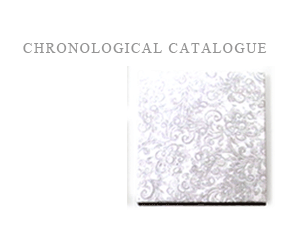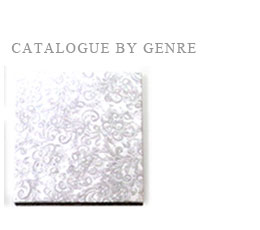

Composer
Education
Riccardo Riccardi was born in 1954 in Rimini where he studied piano
with Guido Zangheri. He attended High School at the Liceo Classico
Giulio Cesare. His Italian teacher was Carlo Alberto Balducci, who had
also been the teacher of Federico Fellini. In 1972 he moved to Florence
to study composition at the Cherubini Conservatory of Music, initially
with Pier Luigi Zangelmi and then with Carlo Prosperi. He concurrently
studied piano with Franco Scala privately until graduating in 1976 at
the Cherubini Conservatory. From 1977 to 1980 he spent his summers in
Germany and, in 1980, worked as music coach at the Youth Festival
Meeting in Bayreuth. In 1981 he earned his Doctorate in Architecture
with a dissertation entitled “Theories of Harmonic Proportions in the
Architectural Treatises of the Renaissance”. He earned his degree in
composition in July 1982 and moved to Los Angeles that August.
Activity as a composer
From the first work in his catalog in 1973 until the early 1990's,
Riccardo Riccardi almost exclusively composed instrumental music in a
late expressionistic style, the style in which he was educated. In the
early 1980's, with
Ad libitum
for piano, he turned toward the language he would increasingly develop
in the following years: an emancipation of rhythm against a strongly
melodic design.
Ad libitum
was the inspiration for a series of piano pieces revised in 1988 for an
event dedicated solely to Riccardi’s piano music at the
Centro de Arte Reina Sofia en Madrid.
Riccardi first approached musical theater in 1991 and 1992 with his ballet,
Il brutto anatroccolo and with his scenic cantata for solos, chorus, and orchestra,
La meraviglia e il dubbio. The sung word became central to his creative activity. At the same time he began his song cycle,
Canti da Pessoa,
for voices and instruments, a project that involved him for more than a
decade. These songs, with text fragments drawn from the great
Portuguese poet, are newly envisioned in Italian and represent the most
rarefied stage of Riccardi's production.
In 1996 for Arcosanti, an utopian city built in the Arizona desert, Riccardi wrote
L’avvenimento
for piano and narrator, on fragments taken from Rainer Maria Rilke and
Vincent Van Gogh. In 1997 he expanded this pianistic poem into his
chamber opera,
L’avvenimento, a work in which he, for the first time, created his own libretto (albeit under the pseudonym, Filippo Candiani).
In 2004, for the Peabody Conservatory in Baltimore, Riccardi composed
The Man Who Loved Islands for narrators and piano, a work that evolved in 2006 into
L’uomo che amava le isole -
Racconto-Opera,
for actor, soprano and orchestra. In both versions the libretto was
written by the composer and based on a story by D.H.
Lawrence. Immediately afterward, he completed a libretto begun in
1998,
Il ritorno di Casanova, from Arthur Schnitzler's novel,
Casanovas Heimfahrt, and then began composing the music for it. The opera
Odisseo dates from 2008. It's a psychological drama inspired by the characters of Homer's
Odyssey but with the original outcome changed.
In 2009, under commission from
Opera Bazar, Riccardi wrote,
Talk Show. The libretto was inspired by two Rainer Maria Rilke’s
Totentänze, adapted to the present-day. In 2010 Riccardi wrote two more operas: the first,
F.S.S.P.A., based on his own libretto, is set in a modern train station. The second,
Una questione d’onore, is based on
Leutnant Gustl by Arthur Schnitzler and is set in Baroque Venice. In 2011 he worked on a cycle of 22 songs entitled,
Não sou nada. Again the material is taken from Fernando Pessoa but this time retains the original text and the Portuguese language.
In 2012 Riccardi wrote a satyrical opera,
Shakespeare & Gossip, drawn from the novel, Caprice, by Ronald Firbank, and in 2013,
Il testamento (
The Will),
a theatrical play with musical arias, written for the Royal Irish
Academy of Music in Dublin. In 2014 he prepared a chamber revision of
his
Concerto for Piano and Orchestra
for the Ferenc Liszt Academy in Budapest, and, after almost twenty
years, dedicated himself again to a cycle of solo piano
pieces,
Diario 2014. In 2015 for the Krakow Music Academy, Riccardi wrote an orchestral suite,
Shakespeare & Gossip Suite, drawn from the opera of the same title, and for the Teatro sperimentale of Spoleto composed
Contesa seconda for chamber ensemble.
In
2016 Riccardi received a request from the Italian Embassy in
Washington D.C to compose a chamber theater work for the celebration of
the Italian “Festa della musica” at the Embassy.
Moving-out
resulted, a play with arias and duets, whose action takes place inside
a New York apartment. In the same year he revised and completed the
instrumentation of his opera
Shakespeare & Gossip for the Anno per Anno Festival, in the Palazzo Braschi, Rome.
In 2017 he finished the composition of
Il direttore, an opera, sung throughout, that was first drafted in 2012. Also in 2017, he completed the instrumentation of
L’ascensore, A chamber opera in three condominium meetings and epilogue, conceived as the final work in his cycle,
Il trittico della banalità, (
The Triptych of Triviality). The first two dramas in that cycle are
Talk Show, and
F.S.S.P.A. Riccardi drew
I cori della banalità from
F.S.S.P.A., for the Festival,
Un organo per Roma 2018. In May 2018
L’ascensore, was staged in the Sala Accademica of the Conservatorio di Santa Cecilia and at the Teatro di Villa Torlonia, in Rome.
Fellowships and awards
- 1980 He was one of the circle of
the winners of the Rassegna Internazionale della Filarmonica Umbra, with his Quartetto per sette strumenti a
fiato.
- 1983 He received the Composer’s
Award at the 21st Southwestern Youth
Music Festival with his Concerto
for Violin and Orchestra.
- 1987 He was awarded “honorable mention” at the Premio
Città di Castelfidardo with his Concerto for Accordion and Orchestra.
- 1995 He was chosen by the California State
University as Italian liaison for the project: Exploration of Musical
Traditions – A Program of Cultural Cooperation between the United States and
Italy.
- 2009 He received a Grant from the Center for
Academic Innovation – Indiana for his opera Talk Show.
- 2014 He was the Nancy Unobskey Visiting Artist
in Modern and Contemporary Art at the Goucher College, Towson – Maryland.

